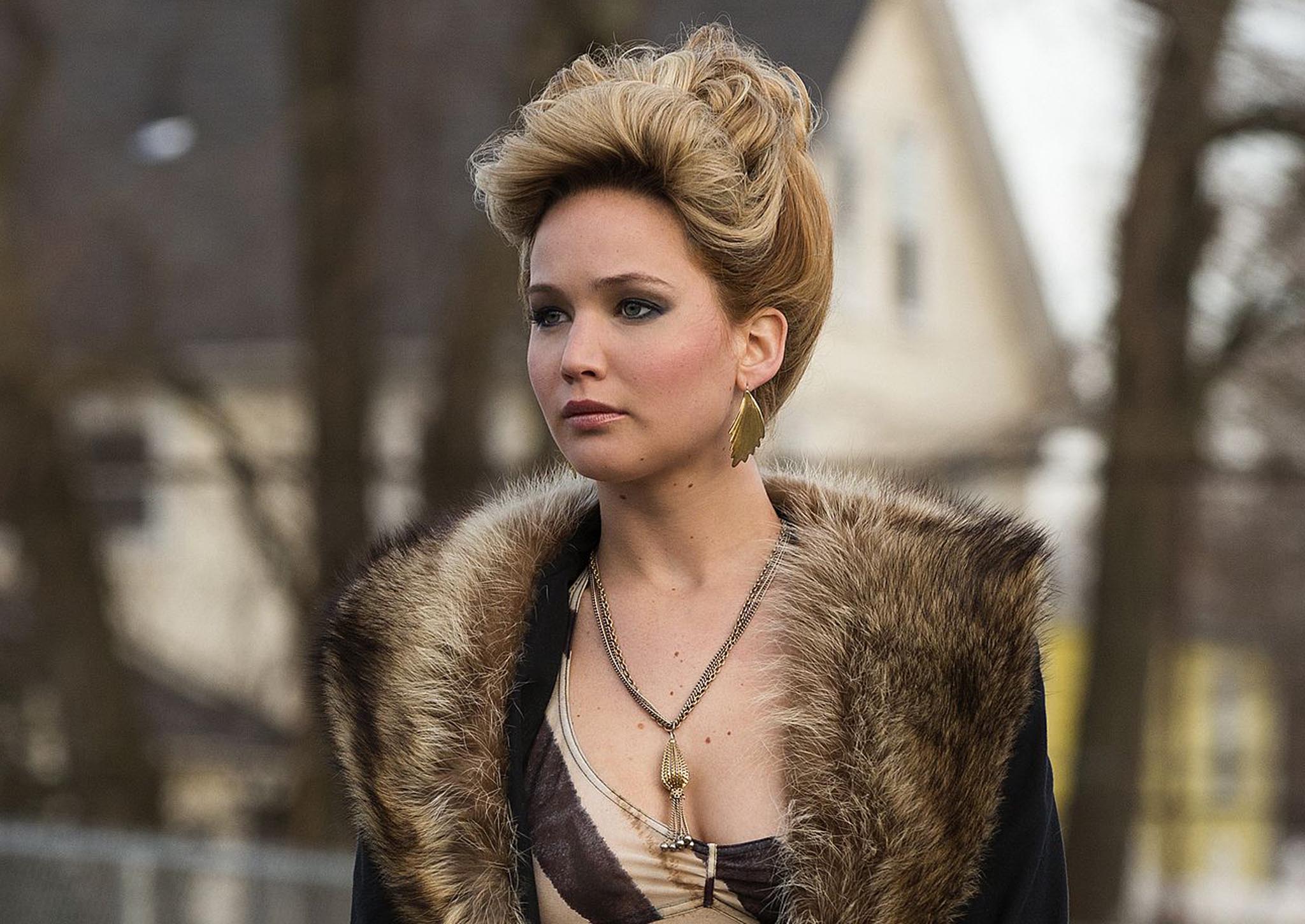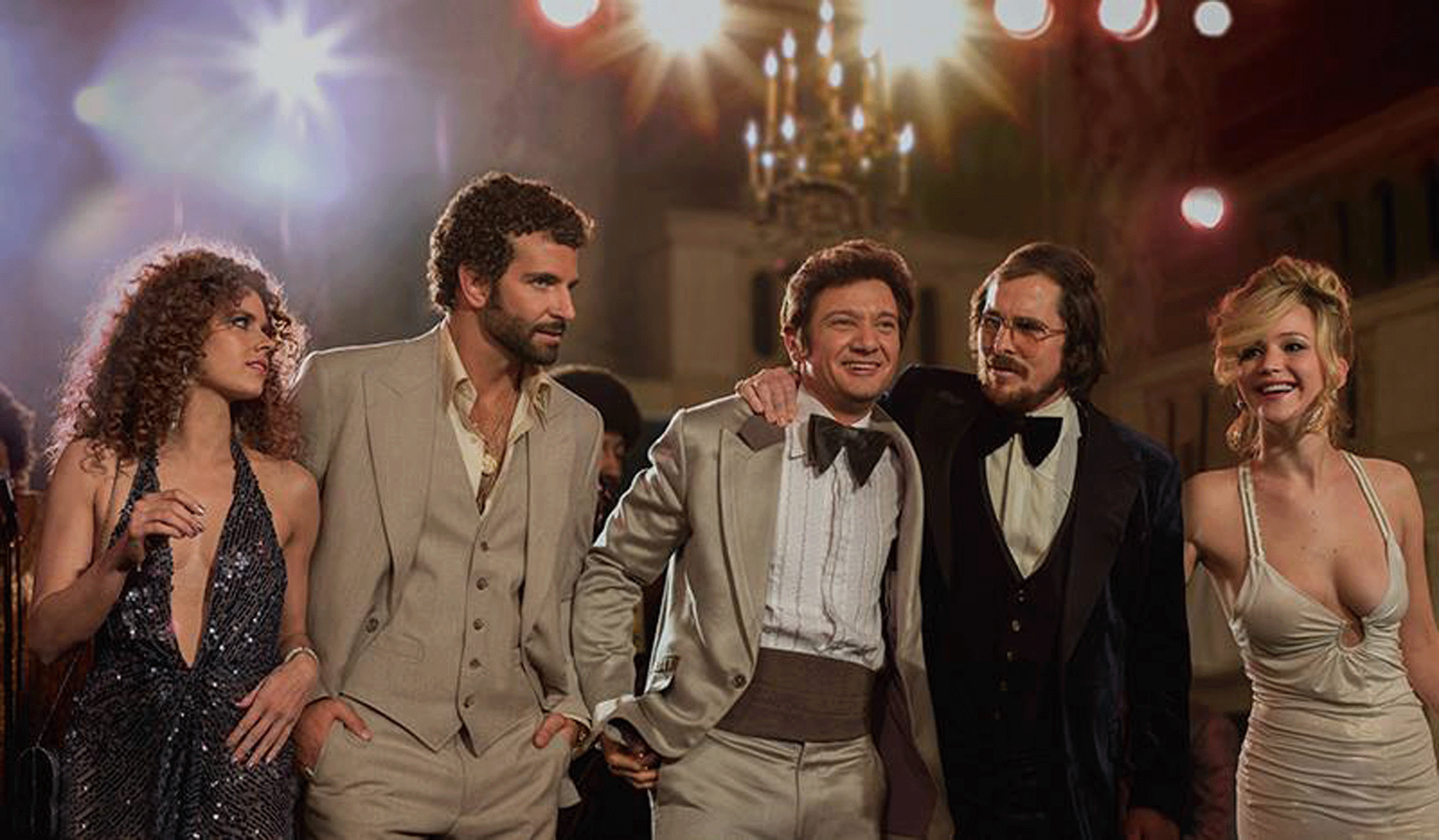American Hustle, review: 'Jennifer Lawrence is brilliant as the neurotic housewife'
The glory of the film lies in its performances, not its narrative structure

Your support helps us to tell the story
From reproductive rights to climate change to Big Tech, The Independent is on the ground when the story is developing. Whether it's investigating the financials of Elon Musk's pro-Trump PAC or producing our latest documentary, 'The A Word', which shines a light on the American women fighting for reproductive rights, we know how important it is to parse out the facts from the messaging.
At such a critical moment in US history, we need reporters on the ground. Your donation allows us to keep sending journalists to speak to both sides of the story.
The Independent is trusted by Americans across the entire political spectrum. And unlike many other quality news outlets, we choose not to lock Americans out of our reporting and analysis with paywalls. We believe quality journalism should be available to everyone, paid for by those who can afford it.
Your support makes all the difference.David O Russell’s American Hustle is the best film about confidence tricksters since David Mamet’s House of Games (1987). Like Mamet, Russell understands that professional con artists are simply doing the same thing as everyone else but in a more self-conscious and calculated way. As he has pointed out, deception and self-deception are a “necessary component of the software of humanity”.
As in his two previous films, The Fighter and Silver Linings Playbook, Russell reveals himself here as a supremely gifted director of actors, a film-maker who gives his cast extraordinary license and is rewarded by performances that are both flamboyant and full of guile. Earlier in his career, Russell almost came to blows with George Clooney on the set of Three Kings and notoriously bawled out Lily Tomlin during the making of I Heart Huckabees. Something has clearly changed. It is apparent that his actors now have full confidence in him. They wouldn’t take such risks or push their characters to such extremes if they did not.
In The Fighter, Christian Bale played a hyperactive, wire-thin boxer-turned-trainer. Here, he has morphed into the wondrously sleazy and overweight con-artist “hero” Irving Rosenfeld. At the start of the movie, we see him carefully fixing his elaborate toupee on to the bald part of his head. Bale’s Irving is as far removed from the Batman action-hero mould as can be imagined. He has a weak heart and gets immediately out of breath if he has so much as to break into a run.
The film is set in 1970s New York, a period that Russell and his team recreate in nostalgic and exaggerated detail. All his protagonists change their costumes constantly (that’s part of their disguise). The men wear flared trousers, jackets with huge lapels, fat knotted ties and multi-coloured shirts. The women, Amy Adams in particular, cultivate a look that is part Studio 54, part Annie Hall. Everyone goes to great lengths to perm their hair. The soundtrack is full of signature 1970s songs, everything from Elton John to Donna Summer.
Irving and Adams’s Sydney Prosser are petty swindlers. Irving has inherited the family dry-cleaning business. From holding on to clothes that customers forget to collect, it is a small step to “fixing” lines of credit. Sydney pretends she is English and upper class with access to special banking facilities. Like small-time Bernie Madoffs, the couple take money from clients for services that they simply don’t provide. Their secret is to trade on their exclusivity. They make a great fuss about turning down potential customers. This makes the customers all the more desperate to hand over their money. The one true passion they share is for Duke Ellington music.

In movies about con artists, we’re never quite sure where the deception begins and ends. This is something the characters themselves don’t fully understand. Irving’s phenomenal powers of dissembling simply evaporate when he is confronted by his needy and manipulative wife, Rosalyn (Jennifer Lawrence), “the Picasso of passive-aggressive karate” as he calls her. She won’t give him a divorce and has a hold over him based on his guilt over their son and his continuing desire for her. Sydney, meanwhile, is “played” by a rogue FBI agent (Bradley Cooper) who forces her to join Irving in a scam to bring down a seemingly corrupt New Jersey politician (Jeremy Renner). The irony is that the politician is the most upstanding character in the movie, even if he is prepared to work with the mob to help rebuild Atlantic City.
An opening intertitle tells us “some of this actually happened”. American Hustle is apparently loosely based on true events. One of its frustrations is that Russell is more interested in spin than in substance. The actual coherence of the plot matters less to him than giving his characters the chance to put one over on each other. There is a sense that he is playing the audience in the same way that the con artists are stringing along their targets. “No more fake shit!” one character protests. It’s a complaint that some viewers may share as the carpet is pulled from under their yet again.
Jennifer Lawrence is brilliant as the neurotic housewife with a knack for destruction. It’s a funny and acerbic performance, very different indeed from her warrior heroics in The Hunger Games. There is a tremendous moment, seemingly partially improvised, in which she encounters her nemesis Sydney in the ladies’ bathroom and reacts to being lectured by kissing her aggressively on the lips.
Her philosophy on life is taken from her favourite cosmetics, which she discovers to her delight are partly made with dung. As she puts it, “The best perfumes in the world are laced with something nasty.” However, the scene in which we see her hoovering her apartment to the accompaniment of “Live and Let Die” is wildly indulgent. Russell’s directorial approach is stylised and deliberately exaggerated but, in its lesser moments, risks turning the film into sitcom-style caricature.
At its best, the repartee between Bale and Adams recalls the equally spiky, entendre-laden dialogue between Bogart and Bacall in Howard Hawks’ version of The Big Sleep (a film that also had a famously convoluted plot). Amid the fakery and masquerade, Robert De Niro introduces a genuine sense of menace as the obnoxious old mobster the con artists need to bribe as part of their biggest scam.
The glory of American Hustle lies in its performances, not its narrative structure. Irving talks of “starting from the feet up” when he is planning a con. That’s precisely the language Method actors use, too. Russell provides the perfect platform for Bale, Adams and co to show off their schtick. If this is ultimately a self-reflexive actors’ exercise rather than a tautly plotted drama, it’s certainly a bravura and very enjoyable one.
Join our commenting forum
Join thought-provoking conversations, follow other Independent readers and see their replies
Comments